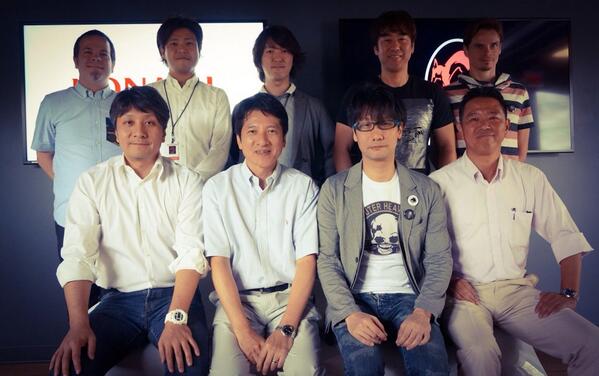rosaceadude2112
Member
fuck it, i spent too long typing this post for it to rot in a dying thread
Emphatically disagreed, homie.
For one, despite the shared plot threads canon is arguably the least important aspect of the Metal Gear story line. Considering how plot points are regularly retconned, forgotten or conveniently ignored, it's apparent that the minute details are really there to serve the overall concepts behind every major title rather than acting as some kind of consistent universe unto itself. Each game in the series has its own distinct voice, communicating similar themes and ideas in tonally disparate ways. Metal Gear Solid has this gritty 90s techno-thriller vibe, 2 has its post-modern surrealism, 3 has it's light-hearted camp and Cold War intrigue, 4 has its bullshit and I didn't play Peace Walker so whatever. The most important thing carried over from MGS1 to MGS2 is abstract rather than any concrete plot details. The fact that Metal Gear Solid, released in 1998 by Konami on the Sony Playstation was a critically-acclaimed and best-selling video game and that fans loved the character of Solid Snake is more important to the story of MGS2 than the specific hows and whys of the Shadow Moses Incident. Every MGS game is more or less saying the same things, they're just all speaking different languages. The same is true of Phantom Pain.
The main talking point when discussing MGSV's tonal shift has been the prior proliferation and now noted absence of so-called "Goofy Ass Shit". I'm talking things like ninjas, vampires, ninja vampires, bee dudes, etc.. Most casual observers of the series have chalked these elements up to merely being the scattered residue of Kojima's own eccentricities and perverted sense of humor. And while it's true that Hideo Kojima is like a weird 60-year-old Japanese dude or something, this doesn't even begin to describe the true extent and purpose of these outlandish flights of fancy. In essence, they are strategic and deliberate devices in order to set a tone that is capable of carefully luring and intriguing players into understanding its harsh worldview. While the MGS series as a whole could be said to be about "War", more accurately it's generally more concerned with the deceptions surrounding war. The mental gymnastics of justifying atrocities, the politics of getting other people to go along with things they would never do themselves. In particular, 2 deals with how information control can change how people think and 3 deals with how fiction and idol worship can alter perceptions. With this in mind, we can now note that the MGS series up to this point takes place in a sort of state of "Unreality" where these elements can run free alongside some of the weightier concepts. For example, there aren't any fucking jungles like that in Russia. The fact that Phantom Pain mostly does away with this unreality is extremely important to the story it's telling.
That all said, 3 is probably the most important title to keep in mind when charting the course from Old MGS' unreality to Phantom Pain's unflinching gruesomeness. As I've posted before, MGS3 is a story about perception, more specifically disillusionment. Throughout the game, Naked Snake learns that war isn't the adventure that he'd hoped for, that the reality is nothing like the James Bonds or John Rambos the aesthetics so heavily crib from. The Cold War wasn't fought by Tuxedo'd Welshmen knee deep in pussy and Vietnam wasn't fought by shirtless musclemen. In killing the Boss, Snake takes the final step to acknowledge there is no Joy in battle. He had been lied to and manipulated in order to get to this point, and from then on he becomes determined to live by his own truth. He resolves to step away from the Unreality that told him being a soldier was great and instead to inhabit Reality.
To a point, anyway. The ideal of Outer Heaven is two noble warriors resolving their conflicts on the battlefield in honorable combat. No outside influence, no politicians behind the scenes, no double-crossing spies, nothing but soldiers being soldiers. The fact that he dreams of a nation where this is possible suggests he's still clinging to some of his old romanticism. The game leading up to the establishment of Outer Heaven is simply showing us why Outer Heaven is just another lie. That's why it's important that Phantom Pain won't simply be portraying Soldiers vs. Soldiers. There's a huge focus on the little people, figuratively and literally. The collateral damage. Think of the horrors Chico and Paz endured in Ground Zeroes. There's the scene with Chico where the thought of someone, anyone, entering his cell frightens him so much he can't even recognize Snake. And the tape where after suffering a brutal rape, Paz asks Chico if he wants to fuck. They're a couple of quiet, sad and pathetic moments that add a lot of life and character and sympathy to something so relentlessly bleak. From the trailers, we also know that MGSV will include child soldiers, kids getting knives pulled on them, handicapped people getting tortured, etc... Big Boss' words and deeds(heh) don't match up at all, and his quest to escape his former Unreality leads him to create another.
It's all very simple, really.






